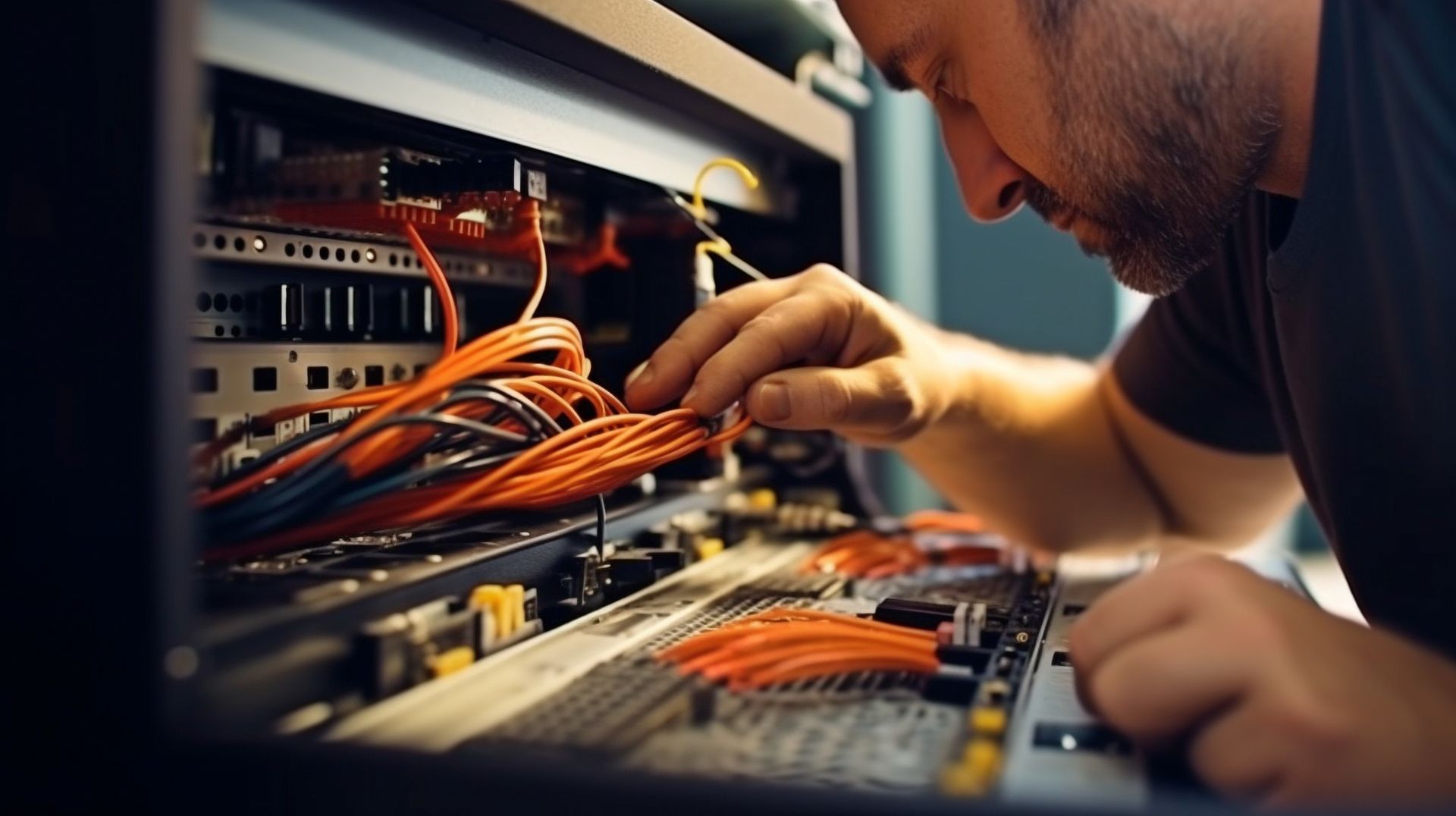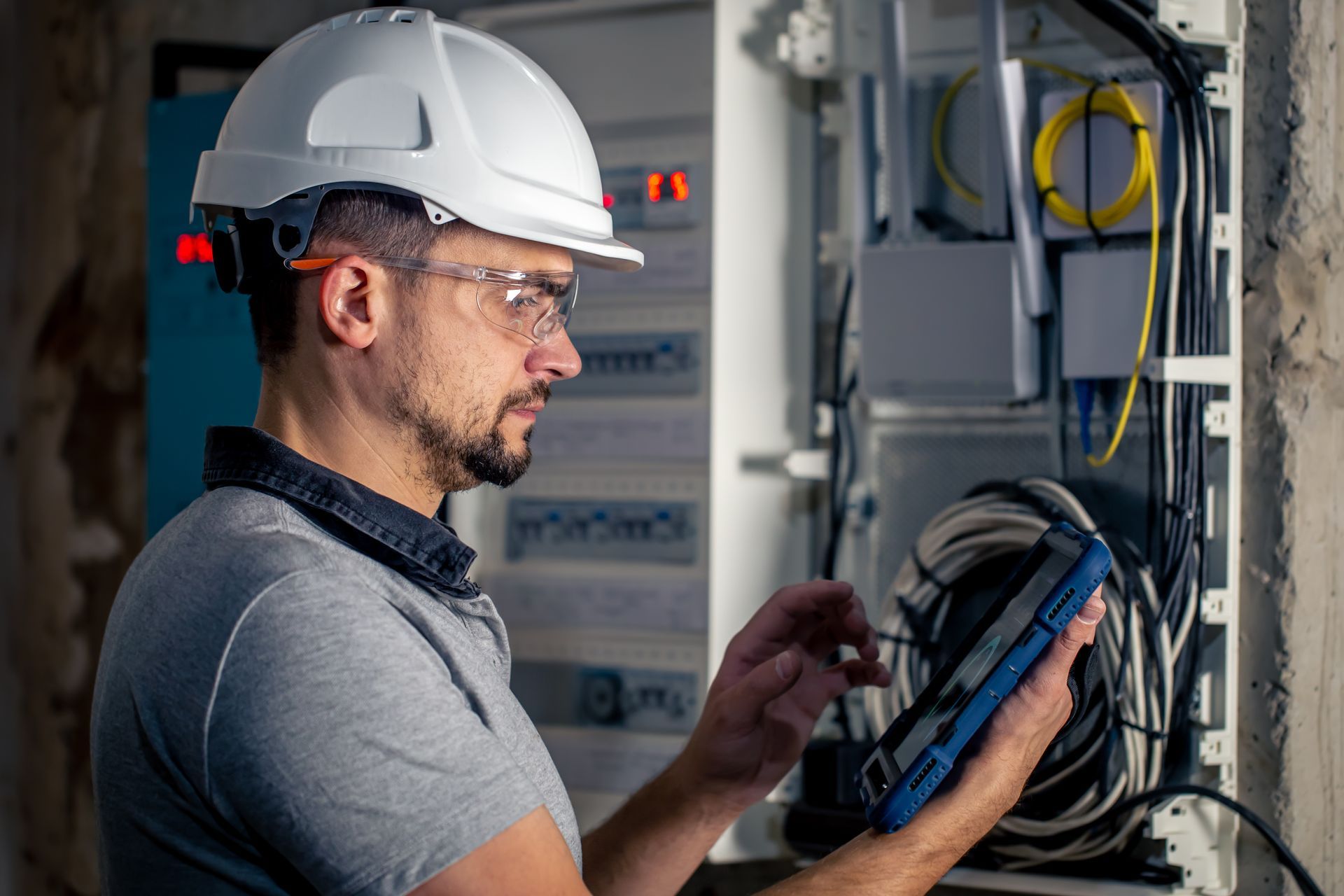Grounding and Bonding: Why They Matter for Your Home’s Electrical System

When it comes to the safety and functionality of your home’s electrical system, grounding and bonding are two essential concepts that homeowners should understand. These critical components help prevent electrical shocks, fires, and other hazards, ensuring that your electrical system works safely and efficiently.
In this blog post, Stetson and Sons Electrical explains the importance of grounding and bonding in your electrical system and how professional electricians can ensure your home’s system is properly configured.
What is Grounding?
Grounding is the process of connecting parts of an electrical system to the Earth, which provides a safe path for electricity to flow in the event of a fault or malfunction. Essentially, grounding allows electrical currents to travel safely into the ground, preventing dangerous electrical shock or fire risks.
Why it’s important:
- Prevents electric shock: Grounding provides an alternate path for the electric current to flow, preventing dangerous electrical shocks to people in the event of a short circuit or power surge.
- Protects electrical equipment: Proper grounding ensures that electrical equipment and appliances in your home are protected from power surges and lightning strikes.
In a properly grounded electrical system, the ground wire is typically attached to a ground rod driven into the earth outside your home, or it can be connected to a building’s steel reinforcement structure (for newer homes).
What is Bonding?
Bonding refers to the process of connecting various metal components of your electrical system (such as the electrical panel, pipes, and outlets) together using a continuous wire. This wire ensures that all metallic parts of the system are at the same electrical potential, which helps to avoid dangerous voltage differences between them.
Why it’s important:
- Eliminates dangerous voltage differences: If metal components aren’t properly bonded, they could have different voltage levels, which may create the risk of electrical shock. Bonding ensures all metallic parts are at the same potential, reducing that risk.
- Provides a safe pathway for fault currents: In the event of a fault, bonding helps direct the electrical current toward the ground, making the system safer and allowing circuit breakers to trip, preventing damage or fire.
Grounding vs. Bonding: What’s the Difference?
While grounding and bonding are closely related, they serve different purposes:
- Grounding connects the electrical system to the Earth to protect people and equipment from electrical surges and faults.
- Bonding ensures that all metal parts of the electrical system are connected to each other, eliminating dangerous voltage differences.
Both grounding and bonding work together to create a safe and functional electrical system.
Signs Your Grounding and Bonding System May Need Attention
If grounding and bonding are not properly set up or maintained, it can lead to serious safety risks. Some signs that your electrical system may need an upgrade include:
- Frequent tripped circuit breakers or blown fuses, which can indicate an overload or improper grounding.
- Electric shock or tingling sensations when touching appliances, outlets, or metal parts of your home’s electrical system.
- Burning smells or scorch marks near electrical outlets or panels, which could indicate a fault in your system.
- Visible damage to grounding rods or grounding wires, which may require replacement.
How Stetson and Sons Electrical Can Help
Ensuring that your electrical system is properly grounded and bonded is essential for the safety of your home. If you notice any of the signs mentioned above, it’s crucial to get in touch with a professional to inspect your system. Stetson and Sons Electrical offers expert electrical inspections, grounding and bonding services, and necessary upgrades to keep your home safe.
Our team can:
- Inspect your grounding and bonding system to ensure it meets the latest safety standards.
- Upgrade or replace old grounding systems to ensure your home’s electrical system is properly protected.
- Bond metal components of your electrical system to eliminate voltage differences and prevent electrical hazards.
Conclusion
Grounding and bonding are fundamental components of a safe electrical system, and they are essential for protecting your family and home from electrical hazards. If you suspect that your home’s electrical system isn’t properly grounded or bonded, contact Stetson and Sons Electrical for a comprehensive inspection and upgrade. Our team of licensed electricians is here to ensure your home’s electrical safety, so you can feel confident in the integrity of your electrical system.
Stay safe and connected with Stetson and Sons Electrical—your trusted electrical experts in Roanoke!





